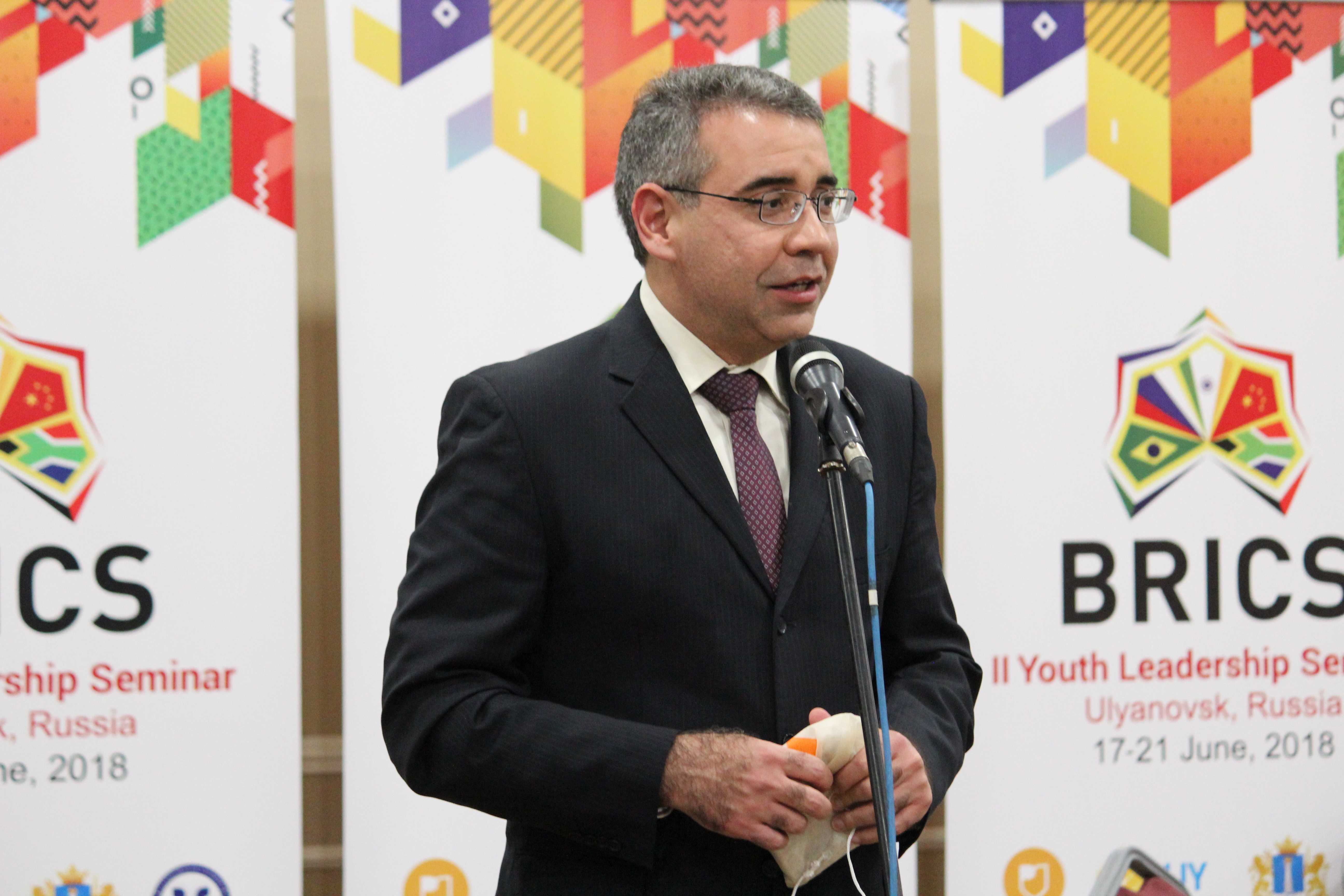RIO DE JANEIRO, April 24 (Xinhua) -- From time to time, 43-year-old Evandro Carvalho likes to visit Brazil's Rio de Janeiro Botanical Garden, and whenever he goes there, he would stay with a particular tea tree for quite some time.
Among all the different kinds of plants in the garden, Carvalho found the tea tree extremely attractive, as it reminds him of one of the first interactions between Brazil and China at the very beginning of the 19th century.

File Photo:Evandro Carvalho
"The king ... invited (the) Chinese ... to come to Brazil to cultivate tea. This happened in 1812, and this is the beginning of the relation between Brazil and China," Carvalho recalled.
Carvalho, a leading international law professor at Brazil's largest think tank the Getulio Vargas Foundation (FGV), began his China studies in his 30s. He has been dedicated to introducing a developing China to the Brazilian society ever since.
The old generation's idea of China "is very far from what China became today," so he felt a need to help Brazilians better understand the Asian country, he said.
In 2013, Carvalho decided to go to China and became a visiting scholar at the Center for BRICS Studies at Shanghai's Fudan University. Three years later, he returned to Brazil and joined the FGV, where he focuses his studies on China and the China-proposed Belt and Road Initiative (BRI).
In 2018, Carvalho became the editor-in-chief of China Today, the first Portuguese monthly magazine on current affairs in China. He has also engaged himself in teaching young Brazilians about China at the Law School of the FGV.
"Young Brazilians ... are very interested to know more about China. But the lack of knowledge about China is still huge," he said.
"When I mentioned ... (the) Belt and Road, few ... knew about that," he said.
In the eyes of Carvalho, it is important to recognize China's role in advancing the development of Brazil, South America and the world at large, especially within the framework of the BRI.
And that's why he decided to use a picture of the Chinese pavilion on the viewing platform of Brazil's Tijuca National Park for the front cover of his magazine's latest issue, to remind people of the origin of China-Brazil relations, and acknowledge China's contribution to the South American country.
"China is the first (biggest) trade partner to Brazil. They are currently the main investors, the second most important (largest) economy of the world, and (a) very important country for many other countries," he said.
In recent years, Carvalho has been committed to promoting the BRI in Brazil. In 2018, he started producing a video series called "Wenyong's Talks on China" -- partly derived from his Chinese name Gao Wenyong -- which has so far released six episodes.
In the latest episode, he invited a Brazilian trade expert to talk about the China-Brazil cooperation under the BRI.
China is "open, modern, innovative-oriented ... and is based on pragmatic and efficient governance," Carvalho said.
Over the past year, the scholar has shuttled between Brazil and China for many times, explaining China's policies to Brazilian institutions, providing legal advice to Chinese enterprises, and translating Chinese books on economics, law and culture along the way.
The word "Rio" in the name of the city Rio de Janeiro, means river, Carvalho said, adding that the city, as what its name tells, "could play a role as a gate to connect Brazil and the Belt and Road Initiative."
K.Y. Amoako, President of the Africa Center for Economic Transformation (ACET) has joined African leaders and institutions in lending strong ...
The Nazarbayev University Social Development Fund has implemented a number of initiatives aimed at supporting the volunteer movement in the ...